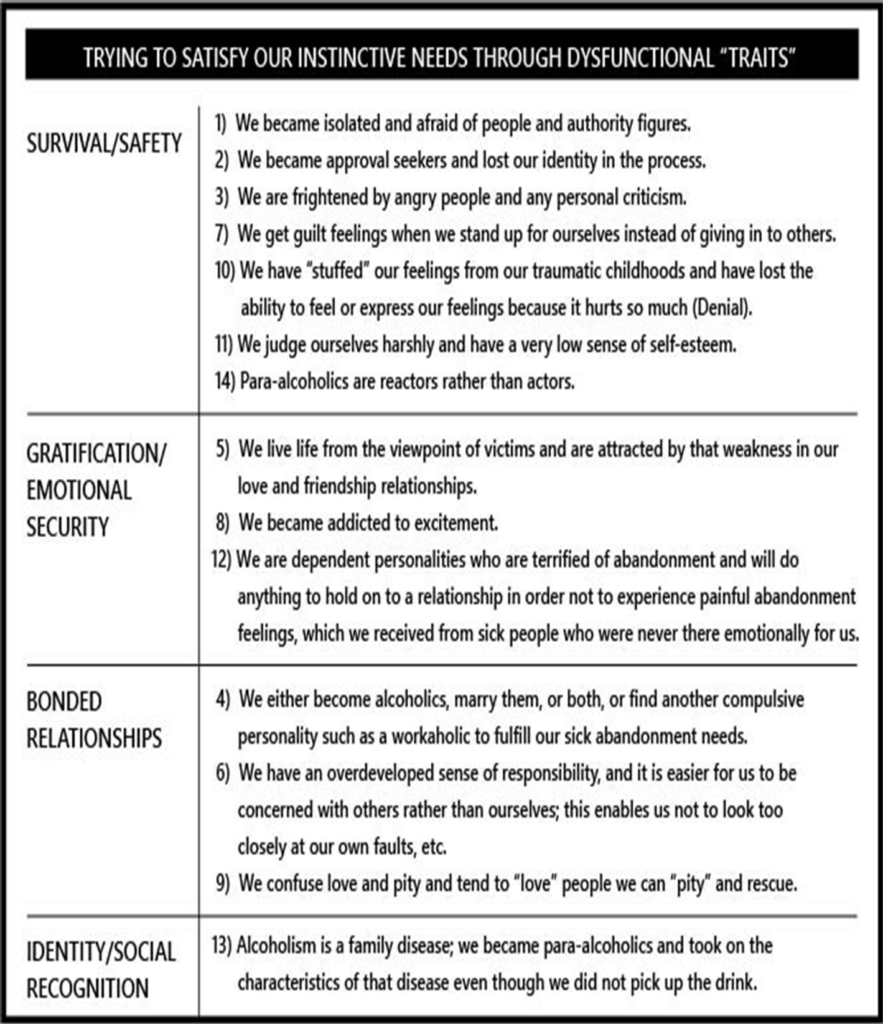Only Trait 4 specifies substance abuse, as a way to cope. Addict/Alcoholic adult children do share the feelings—fears—in the traits, but they acted out as targets of abuse. I believe lumping defiant behaviors into the “Other Laundry List” isn’t satisfactory. All coping behaviors that block us from our authentic self are equally dysfunctional. “Controllers” and “Critics” aren’t less dysfunctional, spiritually, than “Rebels” and “Runners.” “Recovery” means creating functional, harmonious practices.

Getting “Unaddicted” Is the Goal.
Trait 8, “We became addicted to excitement,” is real common ground, the effect of trauma, in all Twelve Step recovery. We seek peace. Substance abuse jolts are but one set of coping behaviors. Attack/reject behaviors also produce a “kick” to relieve symptoms of being inwardly disordered. Critics and controllers get their “fix” by attacking or making demands on those around them. Controllers “get off” on enforcing rules. The rebel’s “high” is fighting, defying, and getting payback. Runners and exiles are hooked on revisiting the stab of painful loss of not being there, again. These modes of coping, whether combined with substance abuse or not, are what AA describes as “the underlying problems” of our disease.
Kathleen S

